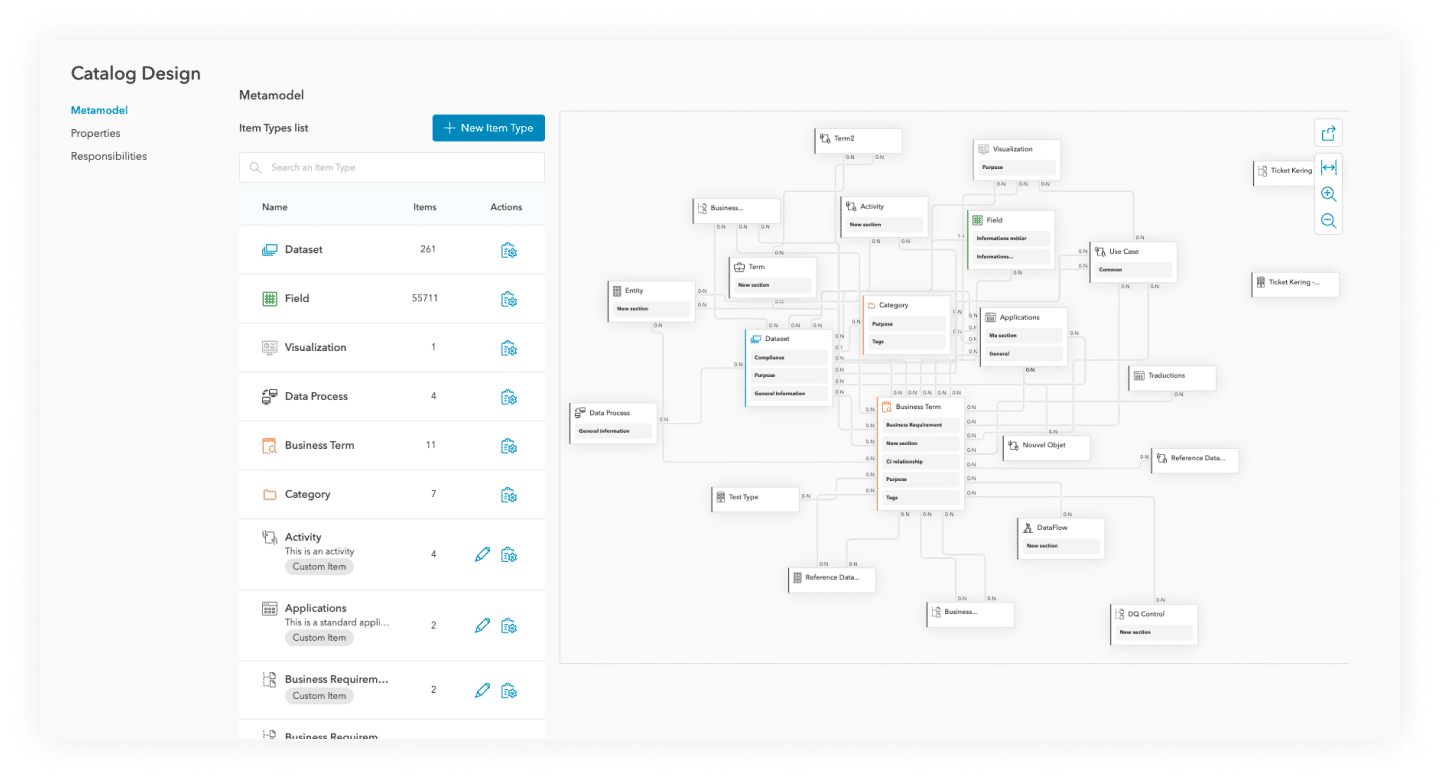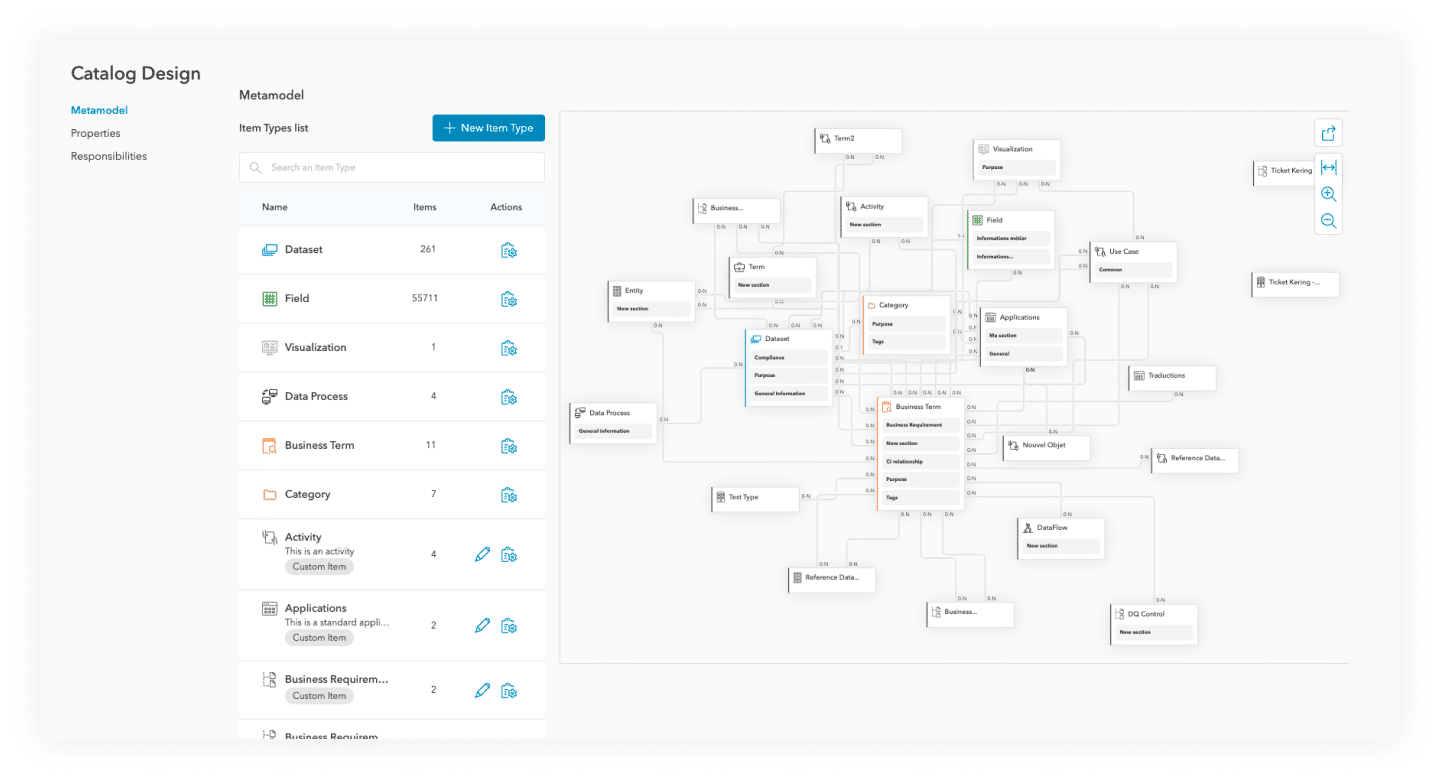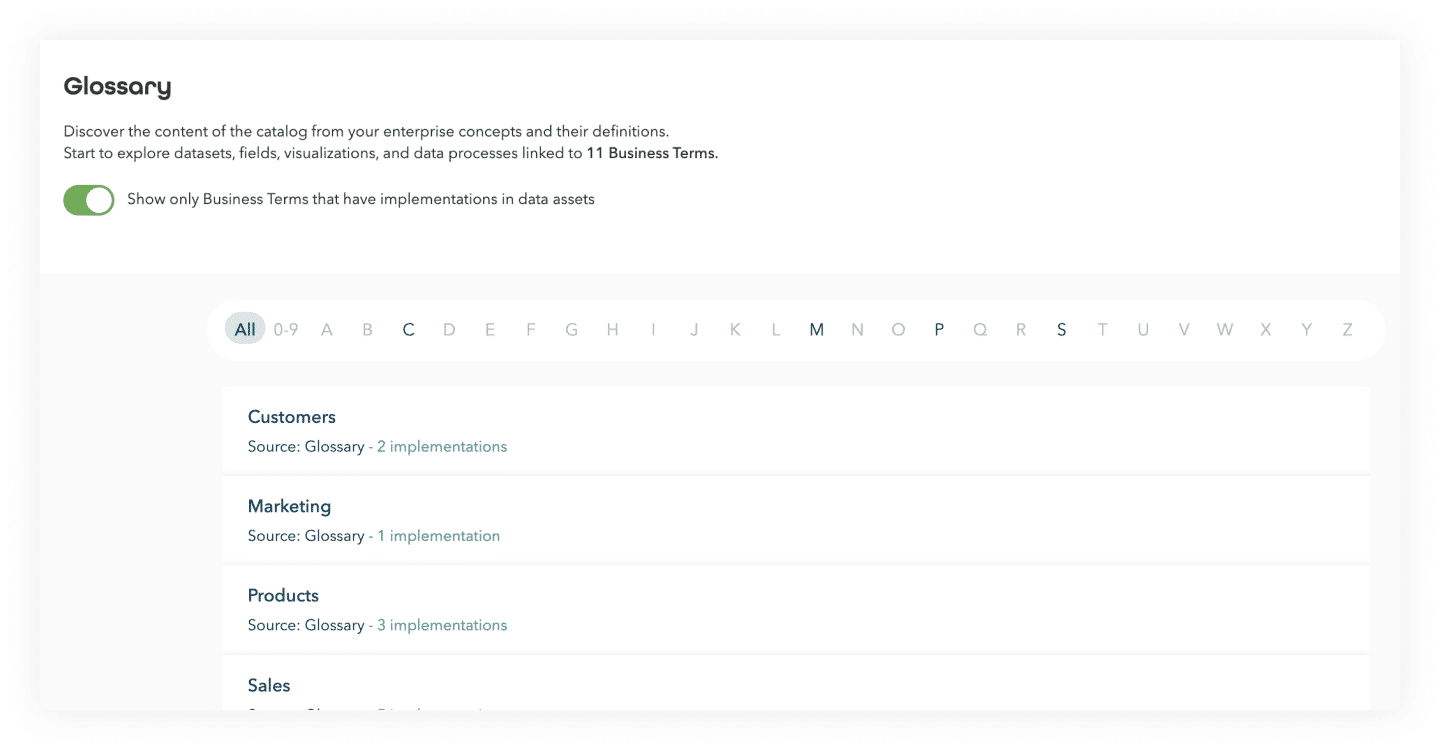A data catalog, created to unify all enterprise data, enables data managers and users to improve productivity and efficiency when working with their data.
In 2017, Gartner declared data catalogs as “the new black in data management and analytics”. In “Augmented Data Catalogs: Now an Enterprise Must-Have for Data and Analytics Leaders,” they state:
“The demand for data catalogs is soaring as organizations continue to struggle with finding, inventorying, and analyzing vastly distributed and diverse data assets.”
In this article, we will share everything there is to know about data catalogs for companies seeking to truly become data-driven.
What Exactly is a Data Catalog?
Before getting into the subject of data cataloging, it is important to understand the concept of metadata management. A data catalog uses metadata – data on data – to create a searchable repository of all enterprise information assets. This metadata, collected by various data sources (Big Data, Cloud services, Excel sheets, etc.) is automatically scanned to enable users of the catalog to search for their data and get information such as the availability, freshness, and quality of a data asset.
Therefore, by definition, a data catalog has become a standard for efficient metadata management. We broadly define a data catalog as being:
“A detailed inventory of all data assets in an organization and their metadata, designed to help data professionals quickly find the most appropriate data for any analytical business purpose.”
What is the Purpose of a Data Catalog?
Topics on data are still considered to be an extremely technical domain. However, data innovation is only possible if it is shared by as many people as possible. This is the very purpose of a data catalog: to democratize data access.
A data catalog is meant to serve different people or end-users. All of these end-users – data analysts, data stewards, data scientists, business analysts, and so much more – have different expectations, needs, profiles, and ways to understand data. As more and more people are using and working with data, a data catalog must adapt to all end-users. In fact, data catalogs don’t require technical expertise to search for, discover, and understand a company’s data landscape.
What are the Benefits of a Data Catalog?
As mentioned above, a data catalog centralizes and unifies the metadata collected so that it can be shared with IT teams and business functions. This unified view of data allows organizations to:
Accelerate Data Discovery
As thousands of datasets and assets are being created each day, enterprises find themselves struggling to understand and gain insights from their information to create value. Many recent surveys still state that data science teams spend 80% of their time preparing and tidying their data instead of analyzing and reporting it. By deploying a data catalog, the speed of data discovery can increase up to 5 times. This way, data teams can focus on what’s important: delivering their data projects on time.
Sustain a Data Culture
Just like organizational or corporate culture, data culture refers to a workplace environment where decisions are made through emphatic and empirical data proof. A data catalog allows for data knowledge to no longer be limited to a group of experts: it enables organizations to better collaborate on their information assets.
Build Agile Data Governance
Instead of deploying overly complex processes too difficult to maintain on assumed information, data catalogs enable a bottom-up, agile data governance approach. A data catalog enables data users to create a data process registry, document legal obligations, track the lifecycle of data, as well as identify sensitive information. All this is in a single centralized repository.
Maximize the Value of Data
By collecting all the data of an enterprise on a reference data tool, it becomes possible to cross-reference these assets and get value from them more easily. The collaboration of technical and professional teams within the data catalog enables innovations that meet proven market needs.
Produce Better and Faster
More than 70% of the dedicated time to data analysis is invested in “data quarrels” activities. Cataloging simplifies data retrieval, the identification of associated contacts, and therefore, data-driven decision-making.
Ensure Good Control Over Data
Misinterpreted or erroneous, enterprises expose themselves to the risk of basing their decision on incorrect information. Connected data catalogs permit access to always up-to-date data. Data users can ensure that data and their information are correct and usable.




